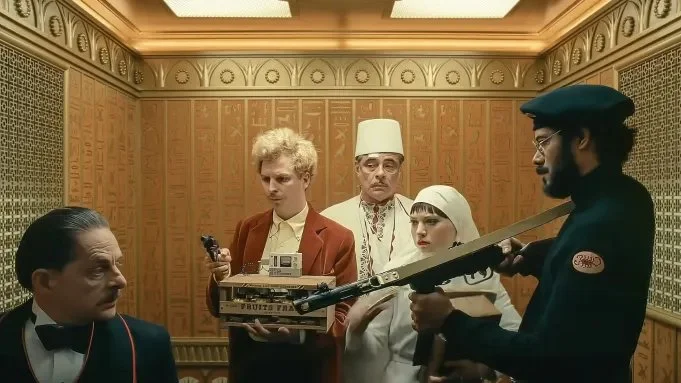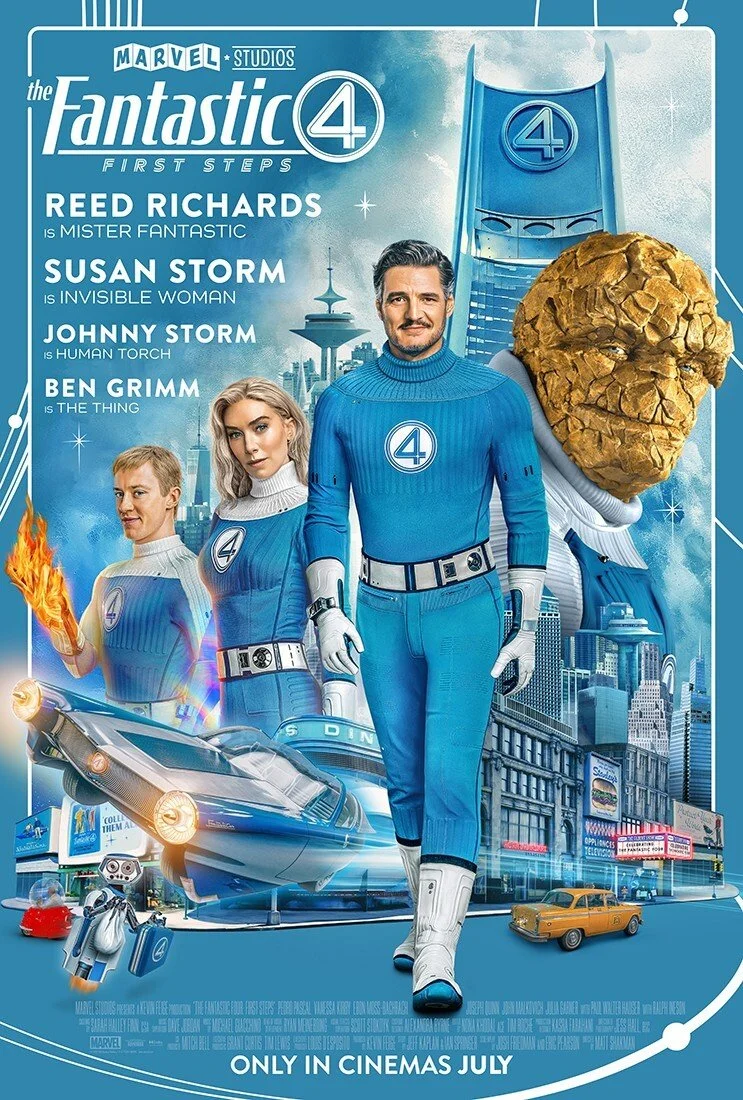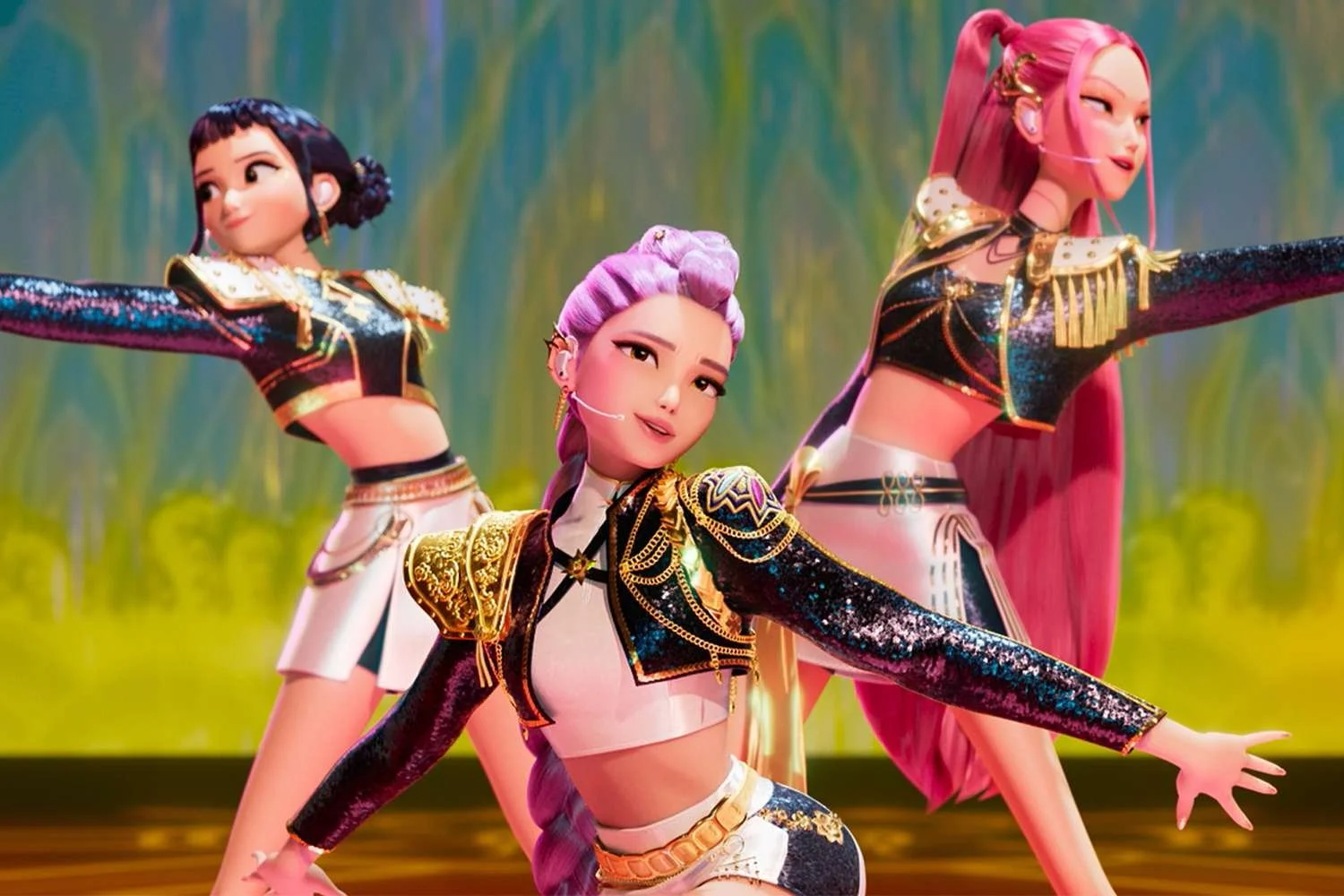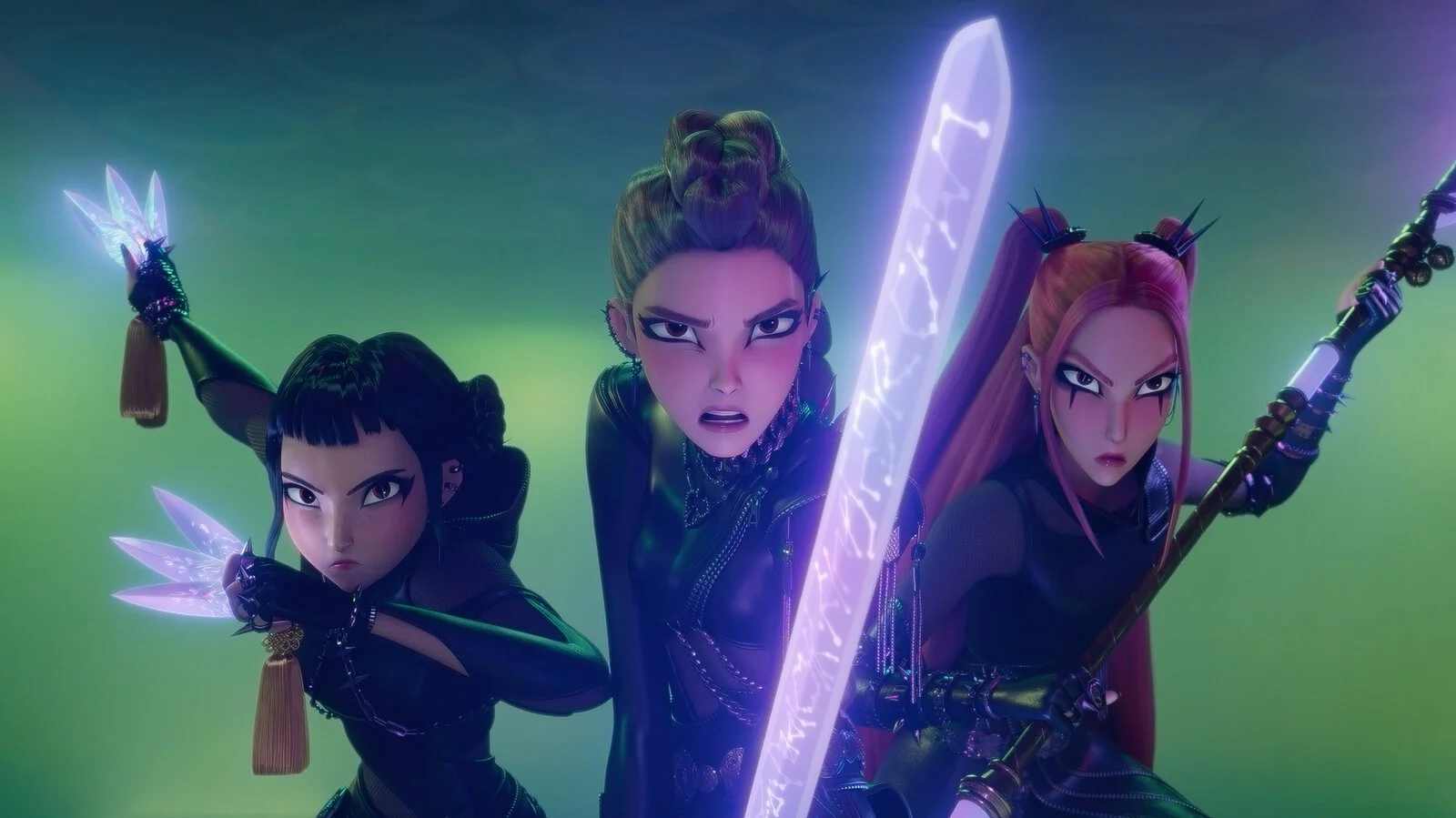As the saying goes, cats have nine lives. Zsa-Zsa Korda has more. When we meet him for the first time, he’s sitting on his private plane, which explodes, killing the only other passenger, before crashing. An assassination attempt, nearly successful, and his seventh plane crash. He’s survived the previous six and, despite a vision of the afterlife, in which his own grandmother doesn’t recognize him, he survives this one too. And that’s how Wes Anderson’s The Phoenician Scheme begins.
One close call in a long line of many, Korda decides to name his only daughter Liesl (sounds like), an aspirant nun, as his sole heir and executor of his estate. His nine sons (some biological, some adopted) seem none too happy about the idea, one in particular sharpening his toy crossbow bolts and taking a few potshots at dear old dad while he explains the scheme to Liesl. It’s a grand scheme in Phoenicia, the former name for parts of Syria and Lebanon, taking an arid area, going deep, and essentially stripping it of all its natural resources in a highly lucrative operation that will make a wild amount of money for his family for generations to come; 150 years by his estimates. Korda, played by Benicio Del Toro (The Usual Suspects, Sicario), is an absolutely ruthless businessman and he doesn’t care a damn thing about anyone or anything but the money. Much to his daughter’s dismay, played by relative newcomer Mia Threapleton (The Buccaneers) in her first Wes Anderson film, he uses the most underhanded tactics to get his way, including slave labor and causing famine in areas of operation so people have no choice but to work for him and take his meager wagers. Make no mistake, Zsa-Zsa Korda is a terrible person, an awful father, and perhaps an even worse husband, as he’s currently on three dead wives, with rumors swirling that he murdered them, including Liesl’s mother. But he has this Rasputin-like ability to survive the many attempts on his life—the multiple plane crashes, of course being the most dramatic, but this is a guy who tests everything he eats and drinks for poison, and with good reason. I mean, I kind of want him dead and he’s the protagonist.
Meeting with Liesl, they see each other for the first time in years and Korda tells her about the plan and tries to coax her into leaving the Church so she can fulfill these duties he’s trying to thrust upon her. Initially hesitant, due in no small part to her belief that, as rumors say, Korda murdered her mother, Liesl resists and states her devotion to the Church. He emphatically denies it, of course, but there’s still doubt in her mind—and yours, when you’re watching. Eventually she’s convinced after a dinner at his large home with her brothers. It’s an odd affair, as there’s no fondness between father and sons and Korda’s staff is treated with indifference. One of the sons says that the soup is good, so Korda summons her to tell her so by banging his foot on the floor twice, prompting the cook to come upstairs. You can see the real apprehension in her face; she has no idea what will happen when she gets up there. The meeting between Korda and Liesl is absolute comedy gold. There’s a deep strangeness between the two and when Liesl finally acquiesces, they go so far as to replace her rosary with a more secular one—the absurdity of the statement left me laughing out loud. Now, to be fair, I don’t know much about Catholicism, but I’m pretty sure that the rosary is inherently tied to religion and I can’t imagine how you would have a secular version of that.
In the background of all this, there is another scheme in the works, as a shadowy meeting of competing business tycoons and governments who are threatened by Korda convene to find a way to neutralize him. After all, if someone keeps trying to kill your protagonist, you’ve got to figure that someone is out there orchestrating the whole thing. And indeed they are, but in this case, the cabal says that killing Korda is over the line; they just want to ruin him, not take him off the map entirely. Which, I suppose is good and an interesting introduction to one of the main themes of the film, morality and sincerity. We see two opposite ends of the spectrum at the beginning of the film: Liesl, the pious aspirant nun, fully sincere in her beliefs in what was considered a traditionally moral organization, and Korda, as cutthroat a businessman as you can imagine, someone who only values money even over life and is only barely convincing when he says that he would never murder anyone (or have anyone murdered, which I feel is a distinction that, if you have to make in the first place, casts serious doubt on anything you say you would or wouldn’t do). The cabal here represents the first of many gray areas that get introduced in the film; obviously they’re not the best folks out there, but they do have lines they won’t cross, which suggests some sort of moral compass within them. And not one from religion, that’s for sure.
After Liesl joins up with Korda, he replaces his tutor, a person he hires to teach both him and his children things about their areas of expertise. The last tutor, you may remember, was bifurcated when the plane in the opening scene went down—he was the passenger who died. Enter Bjorn, played by Michael Cera (Arrested Development, Barbie), a professor of entomology and some other unimportant disciplines. It surprised me when I realized Michael Cera has never been in a Wes Anderson film before, because he’s such a natural fit. He has that deadpan awkwardness down to a highly skillful degree and fits in so well with all the rest of the delivery in Scheme. It’s pithy and quick, but no one ever makes a joke in the fiction of the story. It’s purely an absurdist measure—in the world of the narrative, this is how they act and it’s perfectly normal. But from the outside looking in, I would wager that Scheme is the most laugh out loud Wes Anderson film I’ve ever seen. I spent a couple hours whiling away time in a hotel room this weekend watching Happy Gilmore 2 and because I couldn’t put together a coherent thought about it other than “I didn’t like this”, I dove into Scheme when I returned home and found myself laughing out loud even more than I was cringing at Adam Sandler’s antics.
The casting choices are many of the Wes Anderson mainstays, like Bill Murray, Jeffrey Wright, Tom Hanks, Richard Ayoade (another perfect fit for this kind of deadpan comedy), Scarlett Johansson, Willem Dafoe, and Rupert Friend, and seeing a newcomer like Michael Cera bed into his first Wes Anderson movie so well shows off why Anderson is so keen to work with the same people over and over again. There’s obvious aesthetic and vibe to Wes Anderson films and its makes sense to work with actors who are on board and familiar with it already. There was really only one other notable newcomer to the Wes Anderson ensemble (outside of Mia Threapleton, of course) in the form of Riz Ahmed (Rogue One, Sound of Metal); a small role, but acted well with a surprising amount of laughs generated from the dramatic actor and rapper. I was surprised not to see perennials like Adrien Brody, Jason Schwartzmann, and Owen Wilson in the film, but that’s fine, because it was packed with tons of great actors and actresses in mostly very good cameos (I’d say only Scarlett Johansson’s casting felt off; her character and performance were very forgettable in a movie full of noteworthy performances).
Speaking of Wes Anderson’s aesthetic and vibe, Scheme has it in spades. It immediately looks and feels like a Wes Anderson film, and if that’s a positive for you, then I think you’d definitely like this. It’s even set in 1950 to help fit that aesthetic. If you’re on the fence about Anderson, it’s still worth a shot; but if you absolutely can’t stand him, you’re not going to enjoy the film because he’s not doing much different with the way he’s making his film here than he does with the rest of the films he’s made thus far. But there is one thing that struck me as very different from the movie that got me to perk my ears up and start to revisit his work after being kind of a Wes Anderson hater for much of my life, Asteroid City. Yes, both movies are stylized and at least somewhat absurd, but Asteroid City drew me in with its portrait of profoundly sad people in a very strange situation. From there, I gave The Darjeeling Limited a try and while it didn’t beat out Asteroid City for me, I liked it quite a bit and it was also about profoundly sad people. I don’t know what it says about me that as I get older I am enjoying and identifying more with movies about sad people in strange situations, but there you have it. However, Scheme isn’t about that; Liesl is lonely, sure, being in a convent and all, and I’m sure Korda is lonely as well, living a solitary life despite being surrounded by staff and children, and fending off near-constant assassination attempts is its own sort of intimacy, I suppose. But I wouldn’t describe either of them as sad or depressed. Longing, perhaps; looking for something that’s missing in their lives, even though they don’t quite know what it is yet. But not sad. And I think that’s what lends itself to this more overtly comedic film; even though there is depth to it, it is very funny. In a way, the idea of seeking morality and sincerity in a world of chaos and relentless mercilessness is funny in itself, but not in a “ha ha” funny kind of way, more in an odd funny way. However, Anderson and the cast bring this absurdity out to you in expert fashion.
But it’s not just funny, there is depth here. Yes, there’s a lot of religious imagery and every time Korda has a near death experience or even nods off unexpectedly, we’re treated to a black and white vignette of Korda meeting his maker, being judged for his actions, and all the stuff that tends to come along with that. What ensues is a journey between two opposite ends of the morality spectrum. Liesl faces temptation, both in the form of both Korda’s money, always a corrupting influence, and Bjorn, who is immediately smitten with her. What we see throughout the film is a painting of people trying to find acceptance and understanding of themselves in a mad world. The idea of living a moral and sincere life that comes from within yourself instead from an external source, like religion, runs through the entire film—it starts with a despicable protagonist and ends with something else. Korda has to learn a new way of interacting with the world as he realizes that he is indeed incomplete with the life that he’s been living. Every major character in the film needs to change to live a life true to who they are and a good one as well. So on top of being really quite funny, it’s a fairly beautiful film and I kind of can’t wait to watch it again.
The Phoenician Scheme may not make a fan out of a Wes Anderson hater, but if you’re open to his very distinct style of filmmaking, the brisk 1 hour, 41 minute film is worth your time and it’s available for streaming on Peacock. With a 77% RT score, I was, like Liesl, hesitant myself, as I’ve discussed the curse of corporate mediocrity in the 70% range, but this doesn’t fall into that trap at all. I, for one, am looking forward to revisiting even more Wes Anderson movies that I might have passed over because this is three in a row now that have really spoken to me. It’s a movie that asks you to help yourself to a hand grenade and in this case, my answer is an emphatic yes, please, I’ll take one.



















